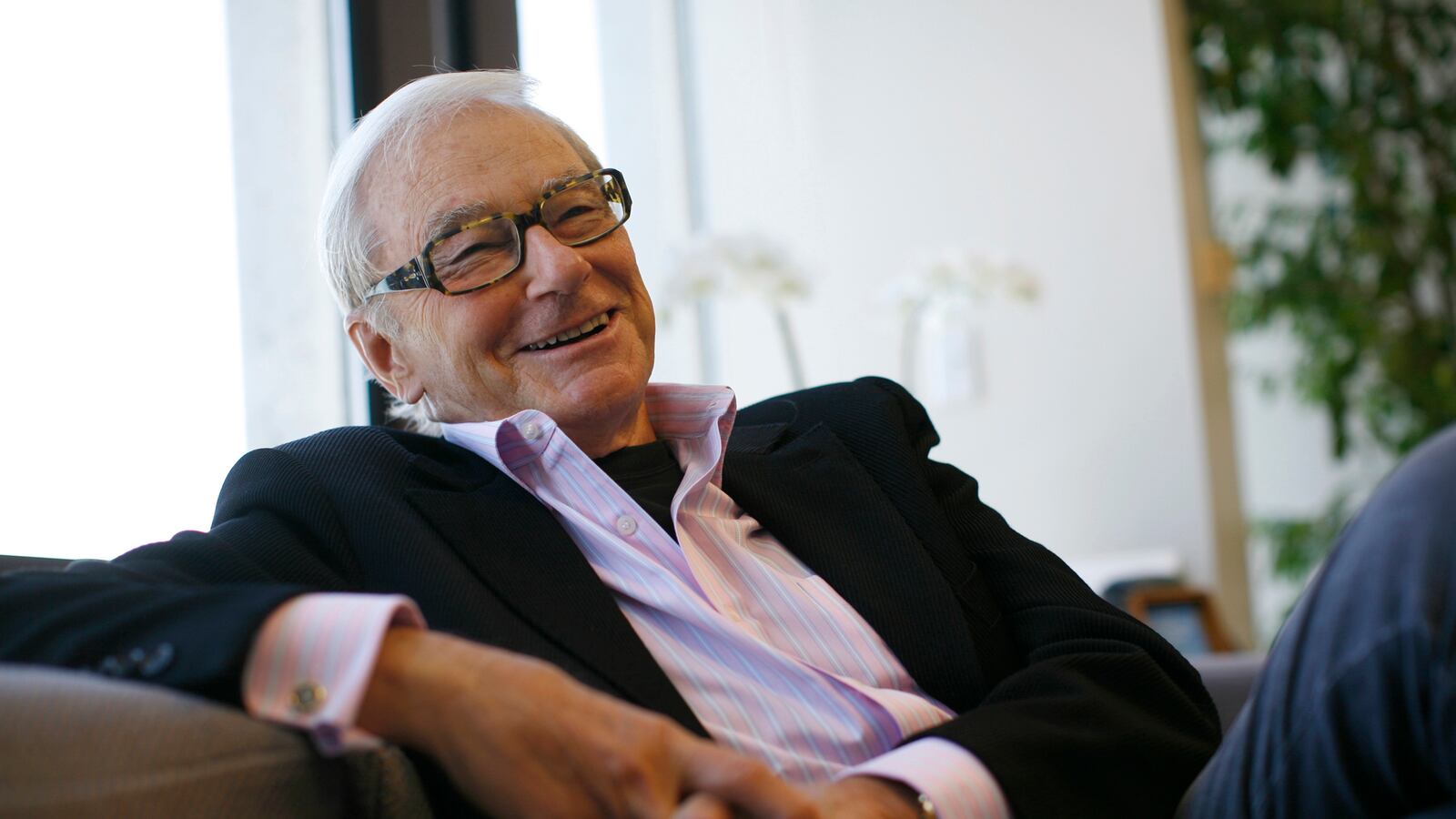
Tom Perkins, who last made news after warning of a progressive “Kristallnacht” against the wealthy, took to the stage last night to further explain his views on the political economy of the United States. Not only does he still the country as a dangerous place for the one percent—liberals, in his view, threaten “economic extinction” with their call for higher taxes on the rich—but he sees income inequality as a product of Lyndon Johnson’s War on Poverty, which he calls a “fiasco.”
There’s one other thing Perkins isn’t happy with—democracy. Or at least, the principle of “one man, one vote.” For him, this makes the rich vulnerable to the whims of everyone else, and this—he thinks—is dangerous. Instead, he says, voting should be tied to property:
When challenged to say, in 60 seconds, how he would change the world, Perkins made a playfully controversial response. He suggested that, in the tradition of Thomas Jefferson’s voting land owners and Margaret Thatcher’s idea of only allowing taxpayers to vote, “The Tom Perkins system is: You don’t get the vote if you don’t pay a dollar in taxes. But what I really think is it should be like a corporation. You pay a million dollars, you get a million votes. How’s that?”
As Jonathan Chait notes, the clear source of Perkins’ anxiety—which is shared by other members of his cohort—“is the existence of a political system that at least aspires to force them onto an equal level with the unwashed masses.”
If there’s anything striking about this, it’s the extent to which Perkins is willing to put it in plain language. The basic idea—that some people deserve more representation than others—isn’t new, or uncommon. Not only does it form the foundation of our political system—the Founders were skeptical of mass participation, and wrote that into the Constitution—but it’s expressed in various form by a whole host of conservatives, from intellectuals and policymakers, to activists and politicians.
There’s Jonah Goldberg, who writes that “if anything, voting should be harder, not easier,” and suggests a citizenship test as a basic requirement for voting. Likewise, Ron Christie—a former assistant to George W. Bush—calls voting a “privilege,” and George Will is opposed to early voting, as—in his words—it’s “defuse and inferior.” Presumably, voting should only happen on the official Election Day, and if you can’t make it, you don’t deserve to participate. There’s also Scott Brown, who during his reelection race, complained about a Massachusetts provision that allows people to register to vote when they access government services, like welfare. The implication of the complaint was that there something unfair in facilitating the political participation of the poor.
Underlying all of this is the notion that, if you have more money or more education, you should have more access.
If it’s any solace to Perkins—and his conservative fellow-travelers—we already live in a world where the wealthy have more representation. As Larry Bartels writes in Unequal Democracy, “the preferences of people in the bottom third of the income distribution have no apparent impact on the behavior of their elected officials.” What’s more, the affluent have much more access to institutions of power, from political action committees to lobbyists to the simple fact that politicians need to fundraise from rich people to raise money and win elections. Indeed, to most members of Congress, the rich aren’t just targets for cash, they’re peers—by and large, our national legislature is a millionaires club.
No, this isn’t the same as a 1:1 relationship between votes and wealth, but it’s not far off. Which is to say that, when it comes to politics and policy, the rich matter more than the rest of us.






